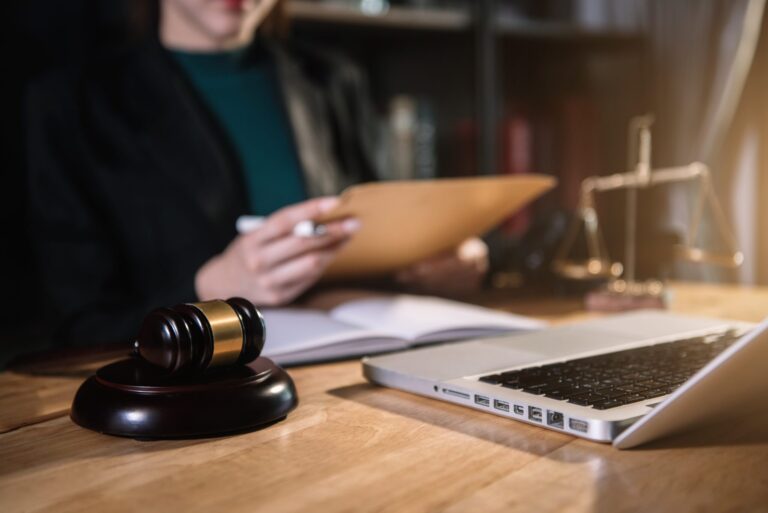Remote depositions have become a common litigation practice because they allow you to obtain discovery without traveling or sitting down to meet with other parties. These virtual proceedings are also an excellent option for attorneys that have been denied a continuance. To make the most out of your session, you must develop a strong remote deposition protocol. In this article, we’ll discuss how you can cultivate this kind of protocol in your own law firm.
Let’s get started!
Defining the Basics and Getting Prepared
Your remote deposition protocol should clearly outline the scope and purpose of the proceeding. If you’ll be conducting multiple remote depositions over the course of the litigation, be sure to clarify whether the protocol applies to future sessions. You should also clearly define the process for sharing exhibits in advance of the deposition, as well as counsel’s post-deposition obligations for returning all exhibits.
Furthermore, the attorney on each side of the dispute should set mutually beneficial parameters. Some major questions to ask when establishing this framework include:
- How will everything be scheduled?
- How will the court reporter be used?
- How will the video be used?
- How will the exhibits be inspected and handled?
- How can each side assure security?
Preventing a Validity Challenge
One of the most important elements of a good remote deposition is that all parties have agreed on the validity of the evidence obtained during a session. Some attorneys who are unfamiliar or uncomfortable with remote work may express concerns that they will be unable to effectively protect their interests in the event of a technological failure. You can address this concern by incorporating certain language into your protocol, such as:
The Parties agree not to challenge the validity of any oath administered by the court reporter, even if the court reporter is not a notary public in the state where the deponent resides.
This provision shall not be interpreted to compel any Party to proceed with a deposition where the deponent cannot hear or understand the other participants or where the participants cannot hear or understand the deponent.
Rules for Communication
Unlike a traditional deposition, you may not be able to see all parties in the room with your deponent while they are giving testimony. To resolve any concerns about private coaching, consider requesting that every witness sign a post-deposition statement attesting to the fact that they did not communicate improperly. An example of such a statement would be:
“From the beginning of the deposition until the end of the deposition, including during breaks, I did not communicate—whether in person, by telephone, videoconference, or any electronic or other means of communication—with any person about the case other than what is reflected in the court reporter’s transcript of the deposition.”
Additional problems videoconferences present include participants talking over each other and the background noise of everyday life (e.g. barking pets, traffic, kids). During a remote deposition, there is also the additional challenge of the defending attorney interjecting objections between the deposing lawyer’s questions and the deponent’s answers.
It’s essential to remind each party of the protocols and rules of etiquette and professionalism during a remote deposition. This includes reminding all participants to not speak at the same time and keeping their microphones on mute when not speaking. These reminders can be written prior to the deposition or verbalized throughout.
The defending lawyer may wish to remind witnesses to pause before answering each question to ensure that the attorney has enough time to make any objections. Conversely, lawyers may also want to consider a stipulation that objections can be made after a question is answered.
Confidentiality Obligations
Certain depositions, including ones in trade secret, patent, or other business litigations will often require questioning about confidential documents and information. Attorneys involved in these types of remote depositions need to consider how to properly manage these confidential materials to avoid inappropriate disclosure or use.
Attorneys should review any protective order that is entered in their case to determine if it contains any provisions that relate to the deposition, including restrictions on the use of designated information during a virtual deposition. Lawyers can also leverage special tools to limit the access of confidential information and, if applicable, limit real-time transcription feed.
Final Thoughts
Thanks for reading! Although a well-written deposition protocol alone cannot ensure success, it will prepare you to overcome challenges like technical failures and back-channel communications. We hope we’ve given you some useful tips that you can use the next time you’re preparing your own remote deposition protocol. If you enjoyed this article, feel free to share it on social media!
When you plan your next deposition, don’t forget to take advantage of our plentiful deposition tools. We provide services including remote court reporting, concierge remote exhibit management, remote videography, and full-time tech support for your remote depositions, arbitrations, court hearings, trials, and other proceedings.






